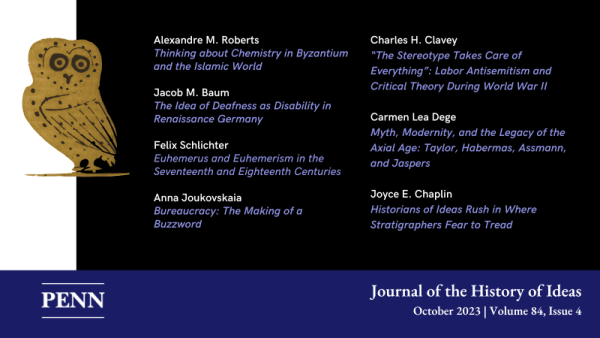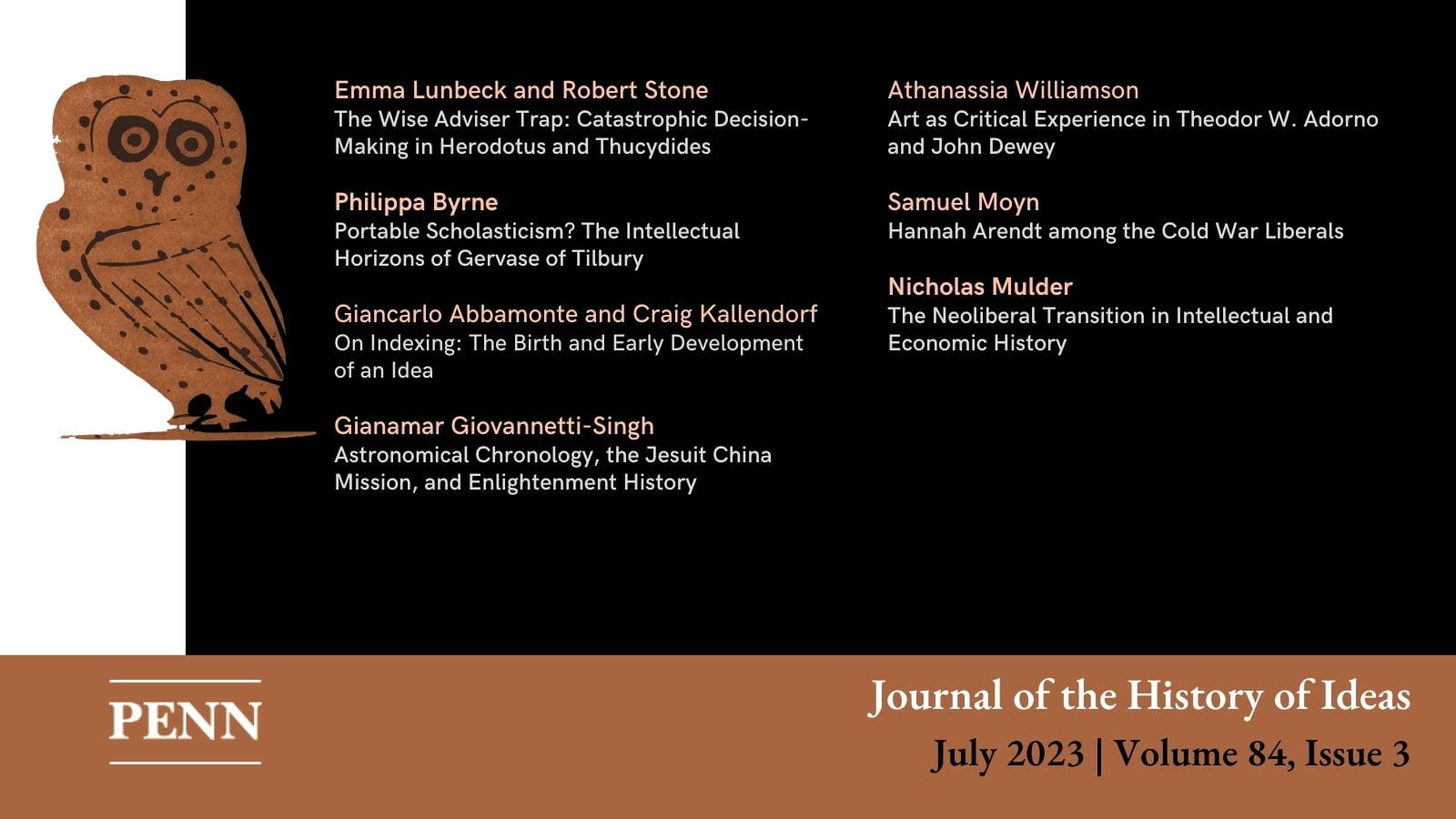Category Announcement
The JHI’s editorial board is delighted to announce the appointment of Adom Getachew, Professor of Political Science and Race, Diaspora and Indigeneity at the University of Chicago, to join Martin J. Burke (CUNY Grad Center, History), Stefanos Geroulanos (NYU, History), Ann Moyer (Univ…. Continue Reading →
The winner of the prize for the best article published in 2023 is Abram Kaplan for “Occupy the Commonplaces: Machiavelli and the Aristotelian Tradition of the Topics.”
The JHI’s sixth annual graduate student symposium will be held this September. Proposals are due by 1 June.
Every year, the Journal of the History of Ideas awards the Morris D. Forkosch Prize for the best first book in intellectual history.
Registration is open for the 2023 Graduate Student Symposium: Saturday. September 9 on Zoom.









